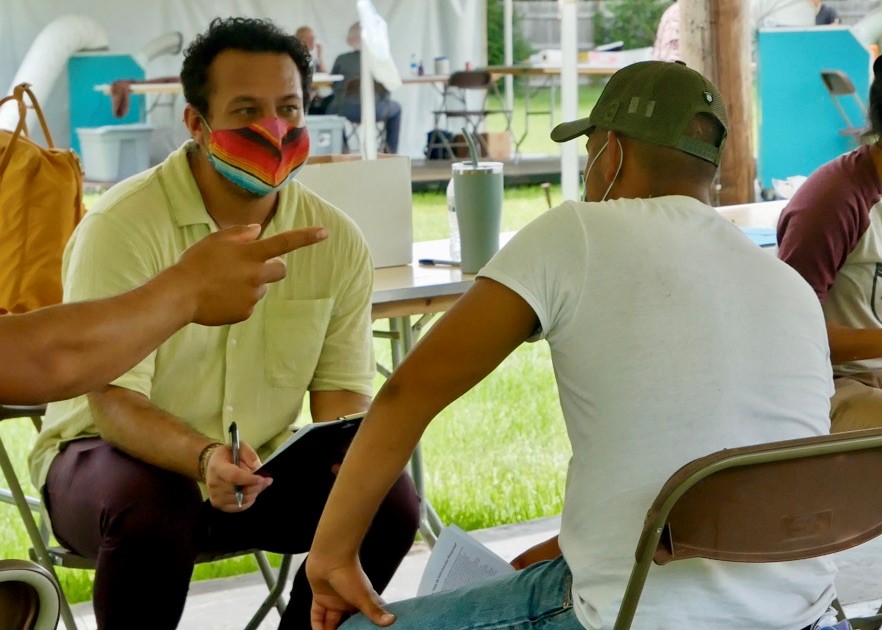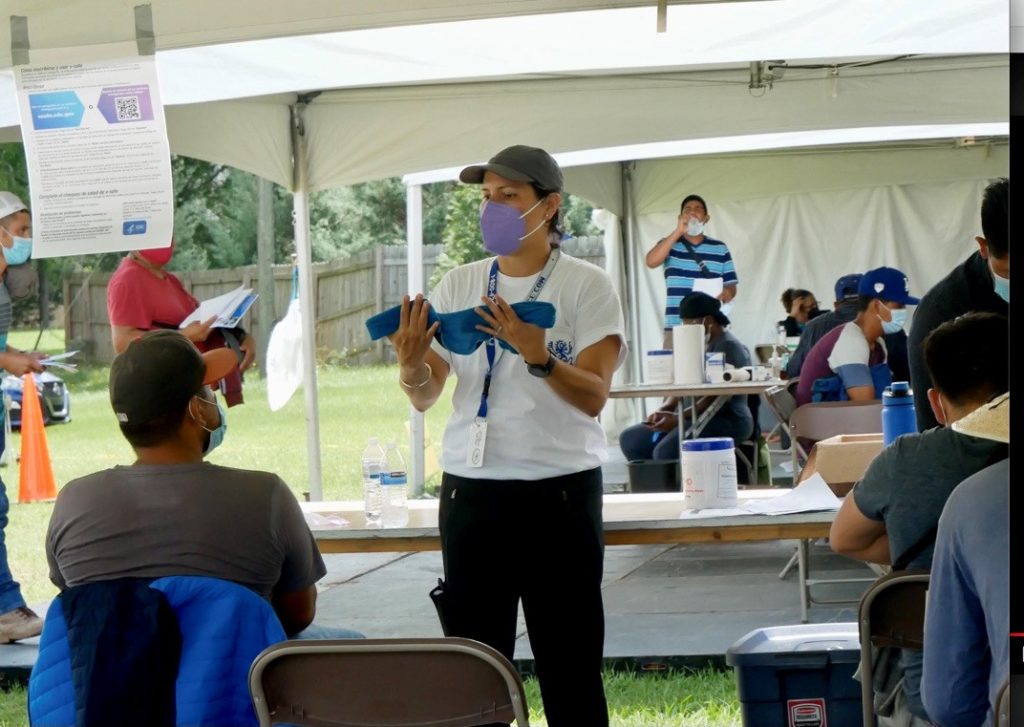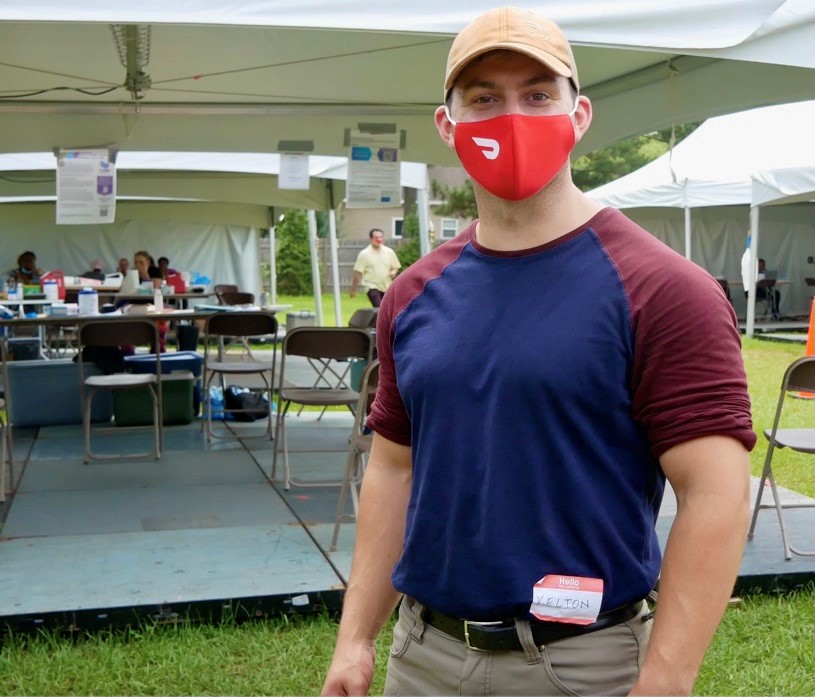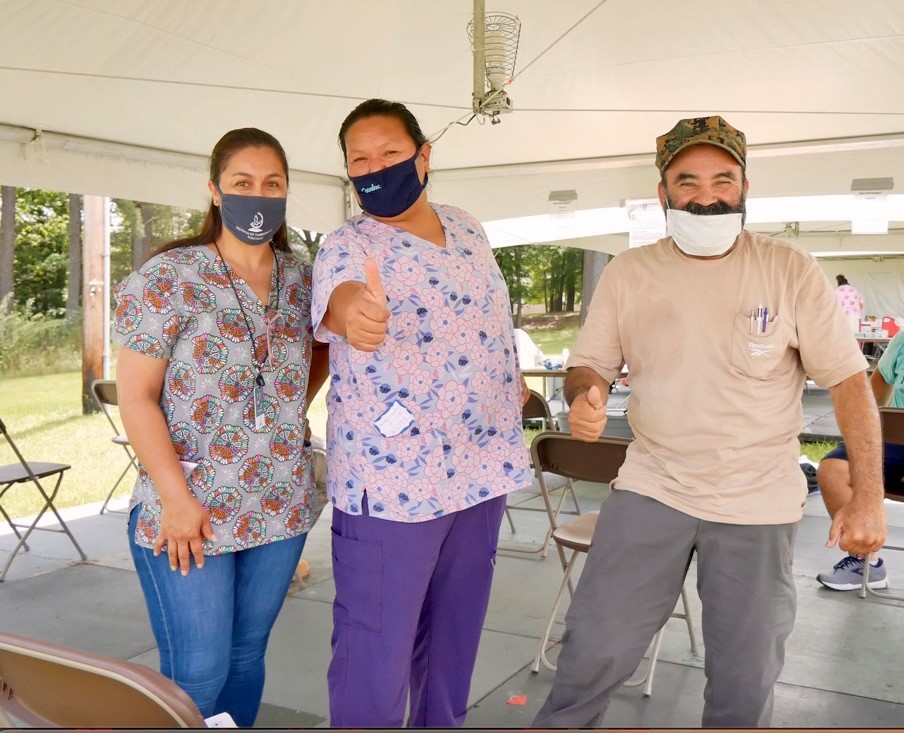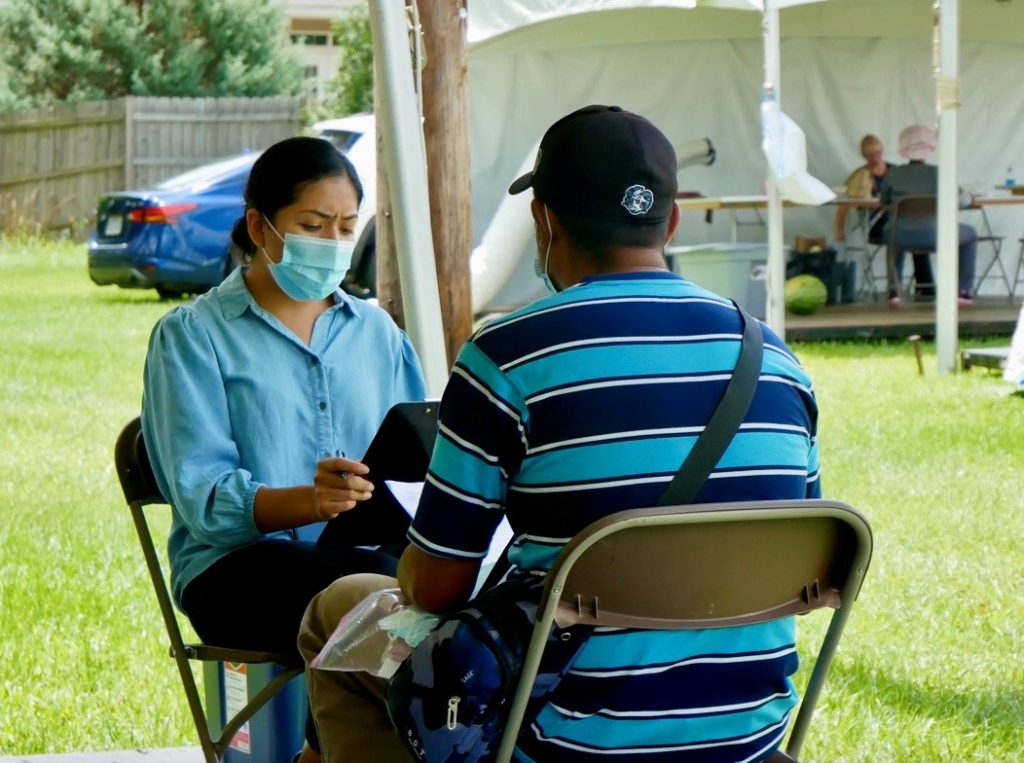Sally Boss had been standing in the North Carolina summer heat for several hours directing arriving farmworkers to their next stop in the vaccination process. As the registered nurse supervisor for Optum, a part of UnitedHealth Group and trusted vaccine provider, she was tasked with making sure all farmworkers were offered a vaccine and then moved through the process as smoothly and efficiently as possible. With nearly 400 workers arriving that day alone, a sizeable staff to oversee, and 90-degree heat, this was a tall order.
The North Carolina Farmworker Health Program (NCFHP), within the North Carolina Office of Rural Health (NC ORH), and the North Carolina Department of Health and Human Services (NC DHHS) partnered with Optum to offer COVID-19 vaccines to H2-A migrant workers primarily coming from Mexico on their way to farms throughout the state. Since April 9, these vaccination events have been happening on a weekly basis. Optum has been an integral part of prioritizing the health and safety of the agriculture community, administering nearly 4000 total doses to date.
While Optum administers the vaccines, interpreters, community health workers and other volunteers greet farmworkers, provide health education, interpretation services, staff the observation tents, and help ensure the entire process runs smoothly. Some have experience working with farmworkers and others are learning for the first time about the essential role they play in North Carolina’s food supply chain.
“This is a whole world I was not aware of,” explained Claudia Huntanar, a volunteer health educator. “I’ve learned a lot about them, and love to hear their stories. I’m thankful to be able to be here and help any way I can, and that I’m bilingual. It’s been an incredible experience to be here and work with these amazing people.”
Huntanar is a pediatric physical therapist assistant and has been helping the farmworker vaccination efforts since April. She is animated and approachable while explaining to the farmworkers in the observation tent how to connect with a migrant health clinic or outreach worker once they reach their destination.
Erik Shultz is a professional medical interpreter with Spanglish Unlimited. While he has extensive experience working with the state’s Spanish-speaking population and at large vaccination events, he hadn’t worked with farmworkers before.
“Working with farmworkers made me see more of the sacrifice they make in coming to this country,” he shared. “They’re coming to a new country, they don’t know the language, they don’t know the surroundings. It’s not unusual that they feel uneasy about getting vaccinated, so I explain things and help them feel understood.”
Kelton Walker, also an interpreter for Spanglish Unlimited, shared a similar sentiment. “They are on the bus for, like, three or four days in a row. So, I like to make them laugh … All my interpretation is remote and medical. This is different. There is interpretation, but with this one, I get to converse and have fun too.”
Other volunteers have long worked with the farmworker community. Janeth Tapia, Leonardo Galván, and Diana Ibarra are all outreach workers with the North Carolina Farmworkers Project, a nonprofit out of Benson, NC, that serves farmworkers in surrounding counties. They conduct outreach to farms and camps throughout the region. Because this reception hub aims to vaccinate all arriving workers, this year they’ve been able to focus on health education and management of chronic health conditions, such as diabetes, as most workers are already vaccinated when they get to their assigned farms.
With 96% of farmworkers choosing to be vaccinated, they are relieved to be able to protect themselves from some of the risks associated with COVID-19, that some witnessed or experienced last year. Mr. Martinez shared that while getting the vaccine made him a little nervous, getting sick is so much worse.
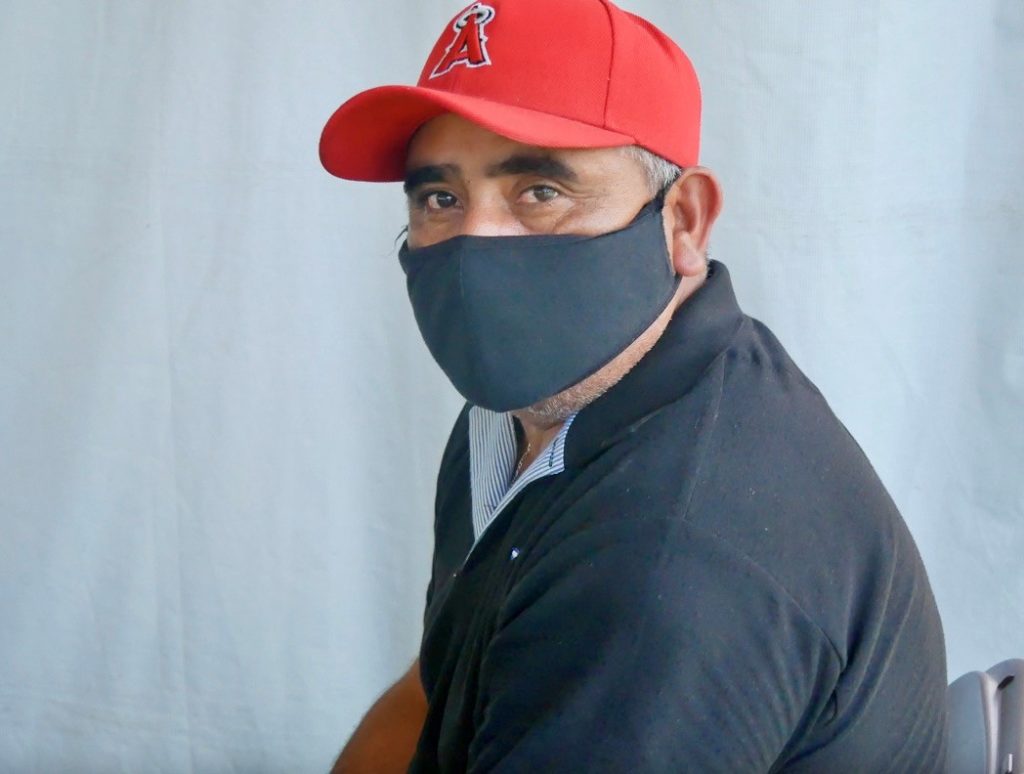
Farmworkers aren’t the only ones to benefit from having an easy way to get vaccinated. Lee Wicker, Deputy Director for the North Carolina Growers Association, expressed how grateful farmers are that many of the arriving workers have already had an opportunity to get vaccinated. “Hundreds of farmers throughout the state expressed their appreciation for the efforts made,” he said. “This is a win for everyone involved and our North Carolina communities.”
The NC DHHS-sponsored event requires flexibility from its participants, especially from the vaccine provider. Workers with H-2A visas throughout Mexico make their way to Monterrey where they board a bus, cross the border, and then travel for several more days before reaching North Carolina. Once in North Carolina, they have the option to get their COVID-19 vaccine. Farmworkers are especially at high risk due to their close living quarters and shared transportation. Getting vaccinated protects them, their coworkers, and the communities where they will be living for the next few months before they travel back to their families in Mexico.
A lot can go wrong during a days-long trek that involves crossing an international border. Buses break down. There are delays at the border. When something unexpected happens, Optum and the numerous volunteers ready to work an event must be able to pivot and change their logistics to meet the needs of the arriving workers. It can make for long days and smaller teams.
“I love a good adventure!” Boss explains, referring to her motivation to step up to the challenge of vaccinating thousands of migrant farmworkers as they come to North Carolina. Her enthusiasm is obvious and motivates her staff to maintain both flexibility and optimism in the face of changing schedules and challenges.
Elizabeth Freeman Lambar, program manager for NCFHP, described the collaborative efforts that have made this event successful, “Optum has done an amazing job responding to the expected but unpredictable changes with the date, time and number of arriving workers each week since the reception hub was initiated on April 9. Their willingness to change and adapt week after week contributed to a staff model that relied on collaboration between Optum staff, interpreters, community health workers and volunteers, all of whom made these events welcoming, informative, efficient, and ultimately highly successful.“
